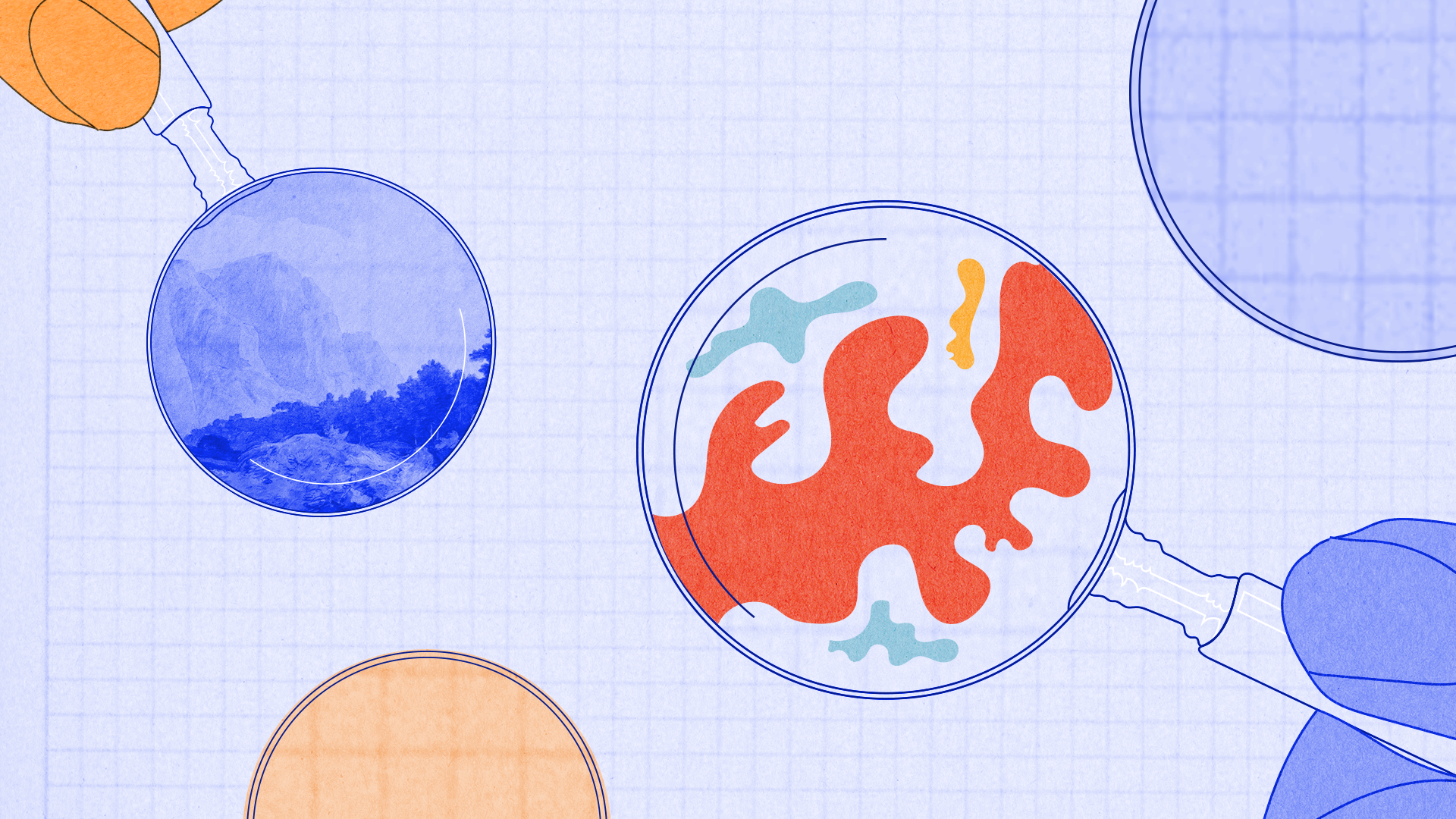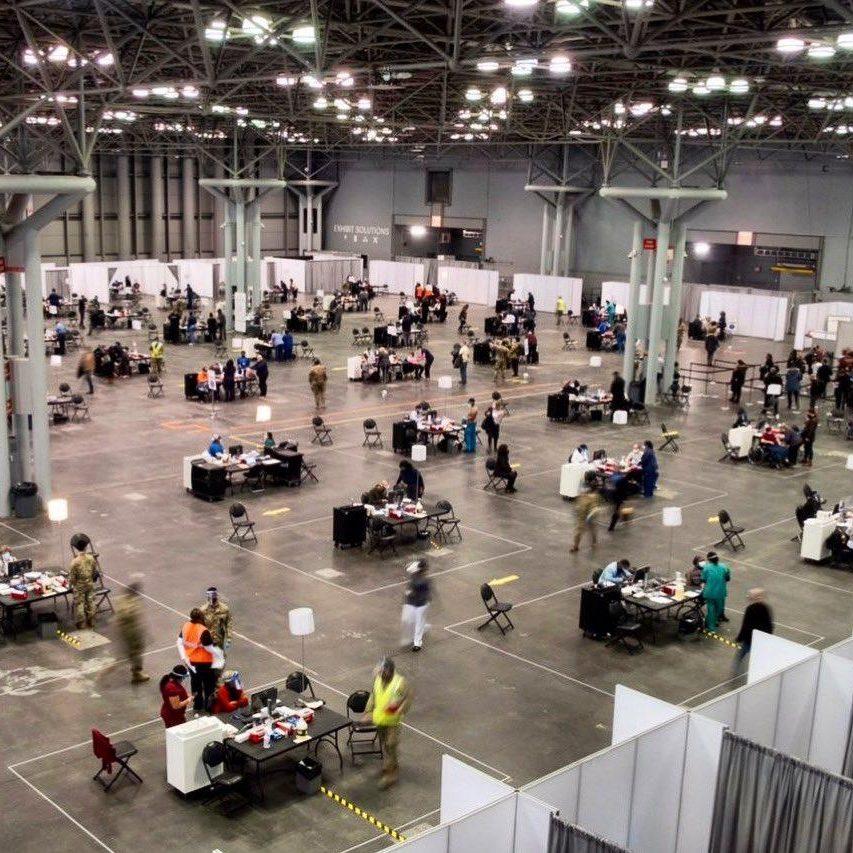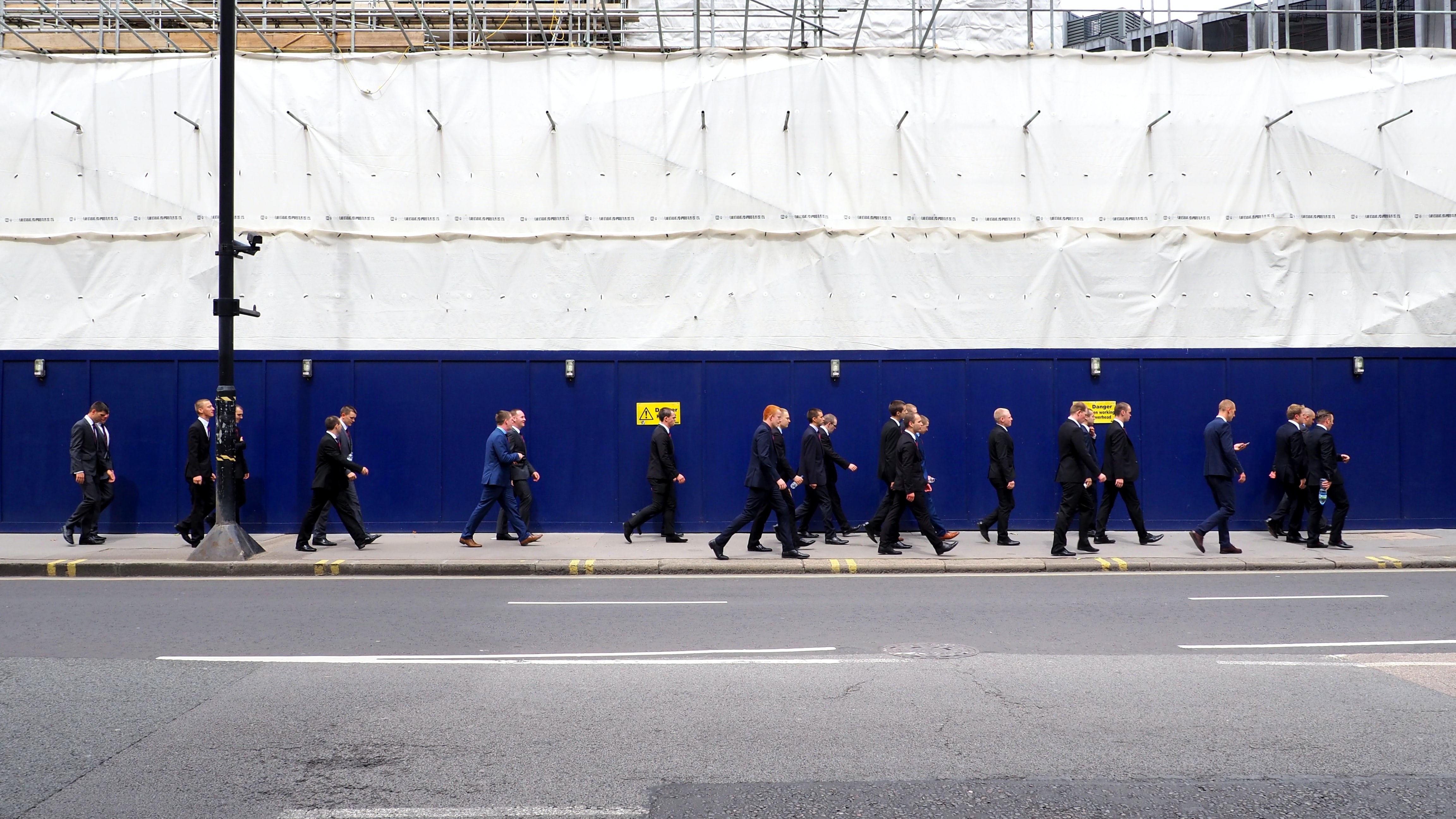Knowledge is a Shot in the Dark

Easter is celebrated in many parts of the world this weekend, but in today’s Beauty Shot you’ll find more ducks than bunnies.
But first, as always, beauty!
In last Sunday’s Living Room Session on beauty (watch the highlights), House musician-in-residence Peter Broderick reminded us of the Danish word for reverberation, and like so many Scandinavian terms — kalsarikannit, vemödalen, or knullrufs (for the full catalogue, see the Dictionary of Obscure Sorrows) — it has a beautiful onomatopoetic ring to it: “Efterklang” (it’s also the name of the fabulous band Peter once played in).
This inspired us to use this weekend to examine the efterklang of our weekly Beauty Shots: to revisit this year’s issues to date and find links between them, patterns, or perhaps even a common thread.
That didn’t seem too aspirational of a goal. When we launched Beauty Shots, we indeed aimed to create a library of sorts that would become more relevant with every edition, covering the landscape of business — charted and uncharted territory — one issue at a time, eventually adding up to a precise map.
But the truth is: it’s not adding up.
There are some dots to be connected, but the map remains fuzzy. There is no bottom line, no key takeaway, no moral of the story. That — if anything — is the story.
The only thing we know for sure is that more than a year into this pandemic, the great reckoning has not been followed yet by the great understanding, and it may never materialize.
“I’m struggling to get my ducks in a row. In fact, I don’t even know where my ducks are,” someone posted on Instagram this week, and it’s befitting these times that instead of the great truth, we find solace or at least some joy in the truisms of social media.
Little do we know.
And yet, we‘ve learned a few things along the way about knowledge itself: that it is time to overcome our fixation on what the Finnish-Nigerian writer and House Resident Minna Salami criticizes as the “europatriarchial concept of knowledge,” derived from the philosophical principles of the Enlightenment, and that we must instead actively seek and cultivate the “sensuous knowledge” that transcends mere rationality and emerges in our relationship to one another and to nature if we care to pay attention.
That kind of knowledge is not a system, it’s a feeling; it’s not an archive, it’s a reverberation of experience: an efterklang.
The pandemic divide: collaboration and leadership
Great, you may interject, but a feeling would not have gotten us the COVID-19 vaccines in record time!
True. But the vaccines highlight an important aspect of the pandemic divide that is cutting across so many aspects of our lives: the vast gulf between the exemplary collaboration in the scientific community and the lack thereof in other sectors of our societies.
Jennifer Doudna, biochemist at the University of California, Berkeley, founder of the Innovative Genomics Institute, and recipient of the 2020 Nobel Prize in Chemistry for co-inventing CRISPR technology, recently commented on the development of the COVID PCR test:
“With a shared vision, a diverse team of professors, postdoctoral researchers, engineers, graduate students and volunteers all willingly put their personal and professional projects on hold to do something that had never been done before. (…) My hope as we climb out of this pandemic is that we build on this cooperation, increase funding for the type of fundamental science that made our work possible, and take a science-first leadership approach to stay ahead of future threats and safeguard our health.”
Business, too, is embracing a new mindset. Chobani, the yogurt company that offered all of its employees stock, provided workers at their Twin Falls’ plant in Idaho with a free COVID-19 vaccine in partnership with the city’s Department of Health and a local pharmacy. Could this be a viable strategy for more businesses in pursuit of herd immunity?
Some countries are learning fast as well: While the jury’s out on the comeback of business travel, Singapore is betting on the importance of face-to-face meetings. The country has created a one-stop shop so that businesspeople can fly in, conduct their meetings in a “glass bubble,” read the all-important body language cues, and then fly out.
This raises the question of how we deal with potential vaccine tourism and the ethical implications of immunity passports (drop into our Clubhouse session with House Resident and bioethicist Françoise Baylis this Tuesday to discuss further).

In stark contrast to science and business, some governments have struggled to adapt.
Take Germany. It is home to the two BioNTech founders who developed the first breakthrough mRNA vaccine in partnership with Pfizer (we heard about this collaboration effort first hand from House Resident Peter Albiez, Pfizer’s country manager for Germany, in our Living Room Session in December). At the same time, the country has experienced a disastrous vaccine distribution campaign. Angela Merkel, who at the outset of the crisis was widely praised as the epitome of an effective leader, with her decisions rooted in science and cool-headed pragmatism, suddenly looks like a lame duck, whereas the U.K.’s Boris Johnson is basking in the success of his vaccine campaign. (To her credit, Merkel apologized for her government’s failure).
How can it be that we deliver with such breathtaking precision on the one hand, and then fumble a logistical challenge so badly on the other? How can we know so much and know so little at the same time?
In the specific case of Germany one answer might be that the government thought it would know how to do this, trusting its traditional uber-engineering and bureaucratic approach. But it must now learn the hard way that in complex times constant learning on-the-job and rapid adaptation beat detailed planning and all-too-rigid coordination.
Another answer points to a lack of leadership. Last week, we spoke with House Resident Steven D’Souza, head of talent development at PMI and a renowned coach and author, who told us:
“There is no such thing as leadership as an abstract set of normative behaviours. Leadership can be demonstrated by multiple actions or inactions.”
Positive actions, however, are only possible if we allow ourselves negative space. D’Souza has written a trilogy about it: after Not Knowing and Not Doing, he will now release Not Being this fall. He’s interested in the “negative capacity,” as the Romantics called it: the domain of the doubtful and uncertain.
It’s a capacity that goes against the type of leadership style Jim Collins heralded in his bestseller Good to Great, one of the most successful leadership books ever written.
House Resident and management thinker Margaret Heffernan is not a fan. She argues: “It’s finally time to retire ‘Good to Great’ from the leadership canon,” dismissing the book as “the American dream for business people, giving hope to the nervous by downplaying the complex realities of the challenge, shrinking the world, and packaging common sense as mathematically proven truths.”
Ouch. But she is right. A new kind of leadership is required of each and every one of us. Not only knowing what we don’t know, but knowing THAT we don’t know.
The multiverse workplace: inclusive, liquid, wondrous
In January, when social audio network Clubhouse appeared as the new hype-beast on the block, we suggested we all acquire the qualities of conference curators and experience designers, commuting between different platforms, cultures, and identities.
With the democratization of conversations online, questions arise for all of us as to whom we pay attention to, which voices we include, and how we moderate content, all the way up to the risk of our spreading misinformation ourselves, an issue on which the leaders of Facebook, Google, and Twitter testified before U.S. Congress last week, yet again.
With the professional world turning hybrid, with a mixture of home and office shifts, new social rules will need to be formed that count for the whole of the multiverse, without differentiating between what’s digital and physical anymore. But business leaders will need to learn from the pitfalls of digital, from data privacy issues to harassment and hostility towards marginalized groups, as they help build a new form of hybrid commons.
In our Beauty Shot on the multiverse workplace we wrote:
“The brave new space of future work is no longer the office (physical or virtual) — it is a room. Clubhouse is the logical culmination of work as a real-time social conversation.”
Along the boom of audio business hums along: Spotify acquired Locker Room, a live sports-talk app, Twitter’s Spaces launched in beta and will be available globally in April, and even LinkedIn is working on an audio networking feature.
These brave new spaces of work might ultimately detach themselves from any fixed and manifested form and rather come alive through curated experiences, regardless of place and platform, as a new work culture that is liquid and warm, adaptive and multi-faceted, inclusive and wondrous.
Meanwhile, what’s going to happen with all the physical office spaces? The co-living market potential in Europe and the U.S. is estimated to reach $550 billion over the next 10 years. It is also worth noting that the global real estate market is expected to grow with a rate of 2.2 percent this year. So yes, offices as we know them will not disappear, and neither our desire to be socially close. And the winners of this long-term trend will likely include companies like WeWork which is attempting to go public for the second time, this time by SPAC (remember our quick primer?).
NFTs: the great dispersion continues
Now imagine what will happen when NFT (Non-Fungible Tokens) houses become a real thing! Digital artist Krista Kim just made history with her Mars House being sold for half a million dollars. According to Kim, “Mars House represents the next generation of NFTs. It is a sign of things to come, as we enter an Augmented Reality interfaced future, with the launch of Apple AR glasses and AR contact lenses.”
Moreover, significant steps have been taken towards tackling the carbon footprint of NFTs: a few days ago, some of the biggest players in blockchain, including Ethereum and ConsenSys co-founder Joe Lubin, announced their alternative NFT network, Palm, that claims to be 99 percent more energy efficient than the current Ethereum technology that is home to most NFTs. Palm might be not the first, but definitely the most impactful attempt so far, including artist Damien Hirst dropping 10,000 unique oil paintings on paper with his “Currency Project.”
Since House co-founder Till Grusche wrote about NFTs and their potential for beautiful business two weeks ago, they have continued to skyrocket — just look at this graph showing its market cap growth — and it becomes clear that long-standing structures and principles are being reverted and reinvented entirely. Increasingly, decentralization and dispersion are the name of the game.
Cryptocurrency start-up IOTA co-founder Dominik Schiener considers whether we’re in for much more change than we realize and projects in TechCrunch the possible wider systemic implications of decentralized, tokenized economies:
“Instead of nine different subscriptions, you can just pay directly for the content that you want, when you want it. Instead of artists giving up half of their earnings to galleries or musicians giving, well, all of their earnings to streaming platforms, they now just take direct payment for their work through fluid networks built by and for this type of content. Instead of paying brokers to facilitate your investments, you can now just invest directly in the enterprises that interest you, including formerly out-of-reach sectors like real estate investment. Instead of crushing poverty and fiercely protected borders between classes, we break down barriers and give everyone access to value.”
In a similar vein, professor Scott Galloway from NYU’s Stern School of Business contends that NFTs further accelerate what he refers to as “The Great Dispersion,” making the current platforms obsolete as quasi-monopolist middlemen. One of Galloway’s recent podcast guests, Raoul Pal, co-founder and CEO of Real Vision Group and Global Macro Investor, goes a step further:
“A supplementary income, universal basic income style opportunity, comes with the rise of NFTs. It can change the whole dynamics of this kind of rich, poor world we live in where those with capital get everything. Because what it’s not all about capital or any longer.”
Work: a historic aberration?
Pal describes a broader shift from scarcity to abundance, which is also the core argument of James Suzman’s book, Work: A History of How We Spend Our Time. Having studied sustainable hunter-gatherer societies like Southern Africa’s San, the anthropologist argues our modern concept of work is a historic aberration.
Suzman reads the oft-cited surveys stating widespread employee disengagement and the rise of meaningless “bullshit jobs,” to use a term by the late David Graeber, not as the symptom of ill-designed work cultures, but as the deeply flawed nature of modern work itself. As its root cause Suzman pinpoints our obsession with scarcity.

“Greed became institutionalized with cities,” Suzman told The Guardian, lamenting the physical proximity to wealth as the main driver of our anxiety over scarcity:
“Suddenly there was now this confrontation, this contrast in wealth, and I think that began to shape people. It created this melancholy of constant aspiration.”
He then later replaces aspiration with “desire” and points out that we must reassess our desires in order to create an economy of abundance: “I don’t know anybody with infinite desires,” he says. “I think for most people, they’re pretty modest.”
House Resident Luke Burgis, the author of the upcoming Wanting: The Power of Mimetic Desire in Everyday Life disagrees:
“I don’t know anyone with fixed or finite desires. The French playwright and philosopher, Gabriel Marcel, wrote about the infinite nature of love: ‘To tell someone, with fullness of heart, ‘I love you,’ is virtually the same as saying, ‘You shall never die.’ We desire that they live forever.
It depends on how we define work ’work,’ but I don’t see work as being ever able to fully satisfy anyone’s desires as a human. Desires transcend the objective dimension of the work itself.
So when it comes to the future of work, I see a battle playing out: we will either attempt to engineer desires away through technology (like AI) so that humans never have to worry about what they want; or we will find new ways to allow human desires to flourish in freedom.”
In this voice memo he sent us, he elaborates on this further.
The circular economy: an erotic economy
Inspired by writer and activist Audre Lorde’s essay on the erotic, Minna Salami called for an erotic economy in our “Living Room Named Desire”:
“Again and again, Black feminists have argued that because the reigning system is a soulless one, the remedy is a way of knowing that incorporates poetry and art, the language of love,” Salami writes. She suggests that
“If we applied Sensuous Knowledge to the economy, it would produce an ‘erotic economy’ of sorts, in which reciprocity and sustenance rather than surplus and scarcity would thrive.”
She essentially touts a more sensuous version of the circular economy. Companies like IKEA have been leading the path towards the principles she describes (watch our interview with IKEA chief digital officer Barbara Martin Coppola). Most recently, the furniture (and so much more) firm has joined forces with fashion retailer H&M to research textile recycling. Both companies pledge to “only use recycled, renewable, or other sustainably sourced materials by 2030.”
Meanwhile, big players like Adidas are exploring more sustainable ways to please sneakerheads. The company has released three new recycled versions of its classic Stan Smith shoe made from plastic-free recycled polyester. The “Stan Smith, Forever” line is part of Adidas’ goal to replace all virgin polyester with recycled polyester by 2024.
While consumers are increasingly environmentally conscious, large-scale policy changes and technological innovations are needed to successfully overcome the climate crisis. Bill Gates’ new book How to Avoid a Climate Disaster: The Solutions We Have and the Breakthroughs We Need specifically raises attention for an energy revolution by lowering costs of what he calls “Green Premiums.”
In his recent TED conversation with House Resident and TED global curator Bruno Giussani, he explains what he means by that:
“It’s the cost to buy that product where there’s been no emissions versus the cost we have today. And so, for an electric car, the green premium is reasonably modest. You pay a little more upfront, you save a bit on the maintenance and gasoline, you give up some range, you have a longer charging time. But over the next 15 years, because the volume is there and the R&D is being done, we can expect that the electric car will be preferable. It won’t cost more. It will have a much higher range. And so that green premium that today is about 15 percent is headed to be zero even without any government subsidies. And so that’s magic. That’s exactly what we need to do for every other category.”
In order to drive such change on an infrastructure level, Gates argues, the voice of the consumer is paramount:
“Their political voice is crucial as they’re also pushing the companies they work for. I absolutely agree that the broad community who cares about this, particularly if they understand how hard it is and don’t say, ‘Oh, we can do it in 10 years,’ are super important.”
So, in the end, it’s upon us.
Let’s get our priorities in order — and then our ducks in a row.
Monika Jiang & Tim Leberecht
Subscribe to the weekly Beauty Shot newsletter by the House of Beautiful Business to receive all upcoming issues.
Monika Jiang is the head of content and community and Tim Leberecht is the co-founder and co-CEO of the House of Beautiful Business, a global platform and community for making humans more human and business more beautiful.
